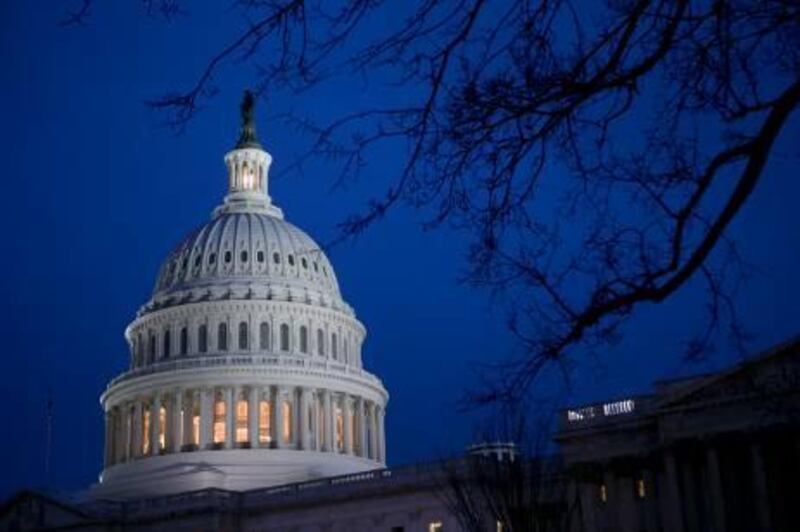The US budget battles are part of a wider war over the role of government in the economy.
Last Wednesday's vote by the US House of Representatives to raise the federal government's borrowing limit seems to have prevented another fiscal cliffhanger that would rattle stock markets worldwide. This, coupled with the dramatic deal on New Year's Eve to extend tax cuts for most Americans and postpone US$110 billion (Dh404bn) of immediate spending cuts, appears to avert a US debt default that would plunge the world's largest economy into another recession and drag down global growth.
But neither decision ends the budget battles that have dominated Washington since the August 2011 events that led to the downgrade of US debt. Next month, the Republican-dominated House and the Democratic-led Senate and White House will face off over the so-called "sequester" - a budgetary mechanism adopted in the August 2011 debt deal that takes effect on March 1 and slashes not only the US defence budget by $600bn over 10 years but also discretionary spending for government programmes by another $600bn.
Linked to this is a continuing fight over federal funding, which runs out of money around March 27 unless Congress raises the debt ceiling once more. Little wonder that the prospect of a $1.2 trillion cut and protracted political paralysis will threaten a shock to confidence in the US economy with global repercussions.
So far Democrats and Republicans are playing hardball. The former will only agree to replace a share of the $1.2 trillion cuts with higher taxes on the wealthy. The Republicans would like to shift spending reductions from defence to government programmes such as social security benefits and Medicare.
If not averted, the sequester cuts are forecast to slow the country's economic growth rate from about 2.5 per cent to 1.8 per cent. Like the self-imposed "fiscal cliff", this will be an entirely self-made crisis that is the result of bad economics and worse politics.
Indeed, the decisions to postpone a showdown over debt default do nothing to change the short- and medium-term problems that beset the US economy, notably a fledgling recovery, high unemployment and crippling national debt.
First, the end of the payroll tax cut and the slashing of government expenditure will take several hundred billion out of the economy this year alone. Second, the bill renews, without funding, the unemployment benefits of about 2 million Americans who were about to lose them. Third, the decisions to avert the fiscal cliff and raise the debt ceiling relieve some short-term pressure but could raise federal debt by up to $4tn.
The bad economics are only surpassed by the abysmal politics. Faced with partisan squabbling in Washington, both investors and consumers across the country are hoarding cash.
Amid the budget battles over the "sequester" and the debt ceiling, the stage is set for a wide war over the size and the purpose of federal government.
There are profound philosophical differences that separate Republicans from Democrats. Republicans push for more tax cuts because they view taxes as legal theft, which destroys positive incentives and undermines self-reliance. By contrast, Democrats want to maintain a public safety net that insures people against risks related to health, old age and unemployment.
Thus, the real worry is the inability of the US political elites to agree and enact economic reforms that address the structural problems of world's largest economy - including extreme income inequality and health inefficiency. The challenge is to raise revenue while reducing healthcare costs.
Neither the White House nor Congress are trusted to tackle these challenges. The growing popular discontent and alienation will only widen the disconnect between the ruling elites and the citizens. The US faces the prospect of being ungovernable and sliding towards debt default. In that case all bets are off.
Adrian Pabst is a lecturer in politics at the University of Kent





